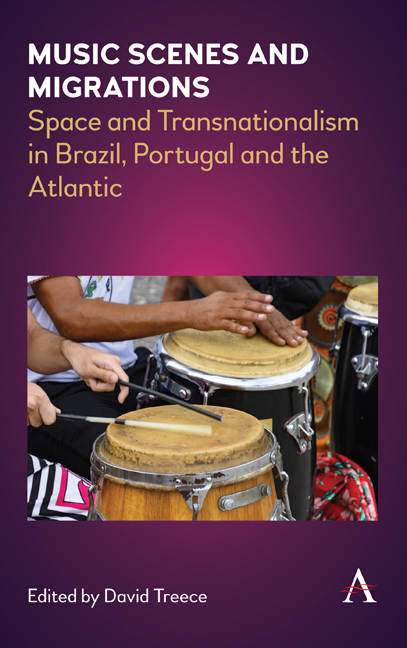Book contents
- Frontmatter
- Contents
- List of Illustrations
- Acknowledgements
- Introduction
- Part 1 Colonial and Postcolonial Transnationalisms, Migrations and Diasporas
- Part 2 Relocating Rio de Janeiro
- Part 3 Demetropolitanizing the Musical City: Other Scenes, Industries, Technologies
- Notes on Contributors
- Notes
- References
- Index
Chapter 16 - An Introduction to the New Social Place ofBrazilian Rap: The Work of Emicida
Published online by Cambridge University Press: 20 January 2022
- Frontmatter
- Contents
- List of Illustrations
- Acknowledgements
- Introduction
- Part 1 Colonial and Postcolonial Transnationalisms, Migrations and Diasporas
- Part 2 Relocating Rio de Janeiro
- Part 3 Demetropolitanizing the Musical City: Other Scenes, Industries, Technologies
- Notes on Contributors
- Notes
- References
- Index
Summary
In Brazil, especially since the mid-2000s, theappearance of rappers has become a regularoccurrence on mainstream television channels. On theother hand, they also occupy spaces frequented bypart of the intellectual and academic elite, such asthe cultural centres run by SESC (Social Service forBusiness) and bookstores. The new social andsymbolic space of rap suggests significant freshapproaches for reflecting on ‘Brazilian’ culture,especially the issues of race and class, as mediatedby cultural commodities. Based on a socio-historicalstudy of the trajectory and musical output of theartist Emicida, this essay presents some initialthoughts on ongoing research aimed at understandingthe major changes that the rap scene is undergoingin the city of São Paulo.
The great success of São Paulo rap artists such asEmicida, Criolo and Rincon Sapiência, together withthe diversity of their audiences, allows us toidentify a certain process for the gaining oflegitimacy, as those audiences encompass differentsocial classes. If, previously, rap was synonymouswith ‘bad taste’ and violence, as well as being animportant signifier of social class, it is nowconsumed by a section of the middle-class,particularly undergraduate students. This newaudience, it seems, is associated with the access ofAfro-descendants, women and working-class studentsto Brazil's public universities in the last tenyears.Struggles to implement racial quotas in highereducation have ensured that black people now havemore opportunities to intervene in fields from whichthey had been historically been excluded.Furthermore, the implications of technologicaldevelopment have contributed to the creation ofalternative spaces for these rappers to communicateand disseminate their ideas. This is the context inwhich some of the transformations observed in theSão Paulo rap scene have taken place, although thesame phenomenon can be observed more broadly acrossthe national rap scene.
These changes have enabled rappers to reconcile theirartistic life with a business agenda associated withdevelopments in technology, particularly the adventof the Internet, and more specifically with thechanges that accompanied the social inclusionpolicies initiated under the administration ofPresident Luiz Inácio Lula da Silva.
- Type
- Chapter
- Information
- Music Scenes and MigrationsSpace and Transnationalism in Brazil, Portugal and the Atlantic, pp. 175 - 184Publisher: Anthem PressPrint publication year: 2020



